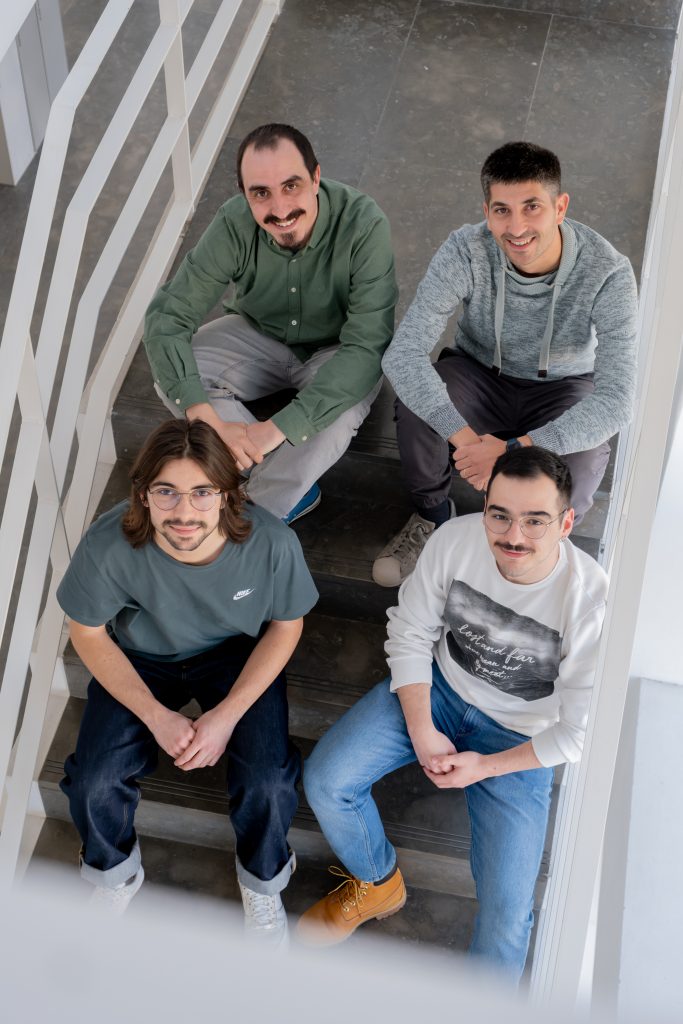RNA regulation and aging
Aging is characterized by a progressive decline in cellular homeostasis and stands as the single most significant risk factor for many prevalent human diseases. At the heart of cellular homeostasis is the cell's ability to control gene expression, which entails the production of the RNAs and proteins required for proper cellular function. This process is exceptionally complex and prone to age-related malfunction.
Crucial steps in gene expression regulation are elicited at the RNA level by RNA-binding proteins (RBPs) and non-coding RNAs. There is mounting evidence suggesting that many of these processes become compromised in our tissues as we get old. However, the origin, extent and functional implications of these changes remain poorly understood. Our primary objective is to decipher how RBP malfunction and disruptions in RNA regulatory processes contribute to the aging process, and to utilize this knowledge to develop novel therapies aimed at promoting healthspan.

Research Team
Research Areas
- Molecular biology and biochemistry
- RNA biology
- Gene regulation
- Aging
Awards
2012 Cold Spring Harbor Laboratory Scholarship, USA
2010-2012 Cardini award (outstanding doctoral student), Fundación Instituto Leloir, Argentina
2010 Best poster award at the 5th International Meeting of the Latin American Society for Developmental Biology, Chile
2010 Keystone Symposia Scholarship, USA
Selected Publications
Perez-Perri JI, Ferring-Appel D, Huppertz I, Schwarzl T, Sahadevan S, Stein F, Rettel M, Galy B, Hentze MW (2023). The RNA-binding protein landscapes differ between mammalian organs and cultured cells. Nature Commun. 14(1):2074. doi: 10.1038/s41467-023-37494-w.
Huppertz I, Perez-Perri JI, Mantas P, Sekaran T, Schwarzl T, Dimitrova-Paternoga L, Hennig A, Neveau PA, Hentze MW (2022). RNA regulates Glycolysis and Embryonic Stem Cell Differentiation via Enolase 1. Mol Cell. S1097-2765(22)00486-5. doi: 10.1016/j.molcel.2022.05.019.
Perez-Perri JI, Noerenberg M, Kamel W, Lenz C, Mohammed S, Hentze MW, Castello A (2021). Global analysis of RNA-binding protein dynamics by comparative and enhanced RNA interactome capture. Nature Protoc. 16(1):27-60. doi: 10.1038/s41596-020-00404-1.
Backlund M, Stein F, Rettel M, Schwarzl T, Perez-Perri JI, Brosig A, Zhou Y, Neu-Yilik G, Hentze MW, Kulozik AE (2020). Plasticity of nuclear and cytoplasmic stress responses of RNA-binding proteins. Nucleic Acids Res. 48(9):4725-4740.
Perez-Perri JI, Rogell B, Schwarzl T, Stein F, Zhou Y, Rettel M, Brosig A, Hentze MW (2018). Discovery of RNA-binding proteins and characterization of their dynamic responses by enhanced RNA interactome capture. Nature Commun. 9(1):4408.Melani M, Valko A, Romero NM, Aguilera MO, Acevedo JM, Bhujabal Z, Perez-Perri J, de la Riva-Carrasco RV, Katz MJ, Sorianello E, D'Alessio C, Juhász G, Johansen T, Colombo MI, Wappner P (2017). Zonda is a novel early component of the autophagy pathway in Drosophila. Mol Biol Cell. 28(22):3070-3081.
Perez-Perri JI, Dengler VL, Audetat KA, Pandey A, Bonner EA, Urh M, Mendez J, Daniels DL, Wappner P, Galbraith MD, Espinosa JM (2016). The TIP60 Complex Is a Conserved Coactivator of HIF1A. Cell Rep. 16(1):37-47.
Perez-Perri JI, Acevedo JM and Wappner P (2011). Epigenetics: New Questions on the Response to Hypoxia. Review. Int J Mol Sci. 12(7).
Dekanty A, Romero NM, Bertolin AP, Thomas MG, Leishman CC, Perez-Perri JI, Bocaccio GL and Wappner P (2010). Drosophila Genome-Wide RNAi Screen Identifies Multiple Regulators of HIF–Dependent Transcription in Hypoxia. PLoS Genet. 6(6).
- Group Leader at iMM since 2023
- Research Staff Scientist, EMBL, Heidelberg, Germany (2020-2023)
- Postdoctoral Researcher, EMBL, Heidelberg, Germany (2014-2020)
- PhD in Genetics and Molecular Physiology, Fundación Instituto Leloir and Universidad de Buenos Aires, Argentina (2013)